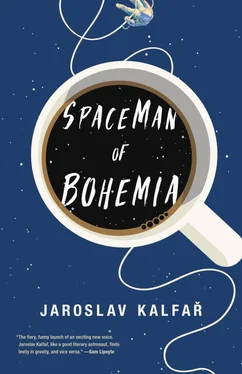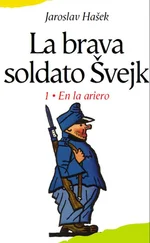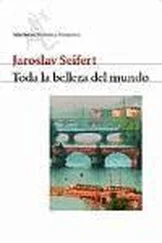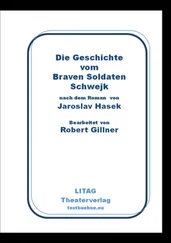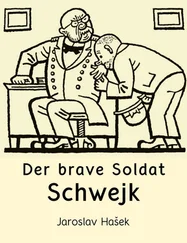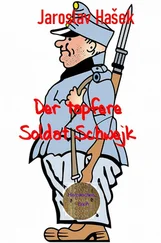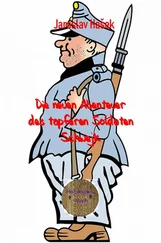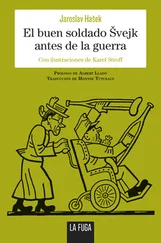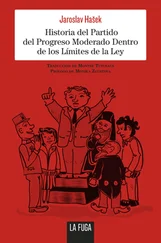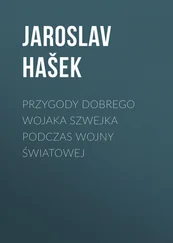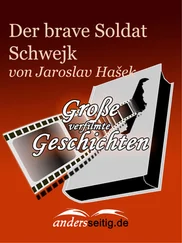The next day, I rode an hour outside Carlsbad, to Chomutov County. I stopped in front of the church in the village of my grandmother’s birth, Bukovec. In the cemetery out back, my grandmother’s gravestone rested underneath a willow tree. She’d always told me stories about this tree—she had been afraid of it when she was a little girl but grew to love it as she matured and its sagging shape transformed from monstrous to soothing, like the blur of moving water. When her appetite for cabbage soup—another comfort of her girlish years—at the hospital had lessened, and it came time for us to say our last words, she told me how much she hated leaving me. I asked what I could do, how I could repay the lifelong adoration she had given me, how I could show my love, and she said if there was a space anywhere near that damn tree, I should put her there.
I kneeled at the grave and brushed the dried catkins from the sleek stone. I was sorrowful that I hadn’t been able to release her ashes in Space along with my grandfather’s. But this had been her wish. At the end of his life, my grandfather wanted to become dust, to have all trace of the body destroyed so the soul could be free. My grandmother had an agreement with nature. She wanted her body to be buried whole, to become one with the soil, with the tree, with air and rain. With a heavy heart, I had separated them, but I knew that if any remnant of cosmic justice existed, they were already together again in another life, another reality. I stayed at the grave into the night, told my grandmother of Hanuš, as I knew she would’ve asked him many questions. I returned to Carlsbad as the sun began to rise.
PETR SAID THAT my recovery was coming along as well as it could. I had regained some muscle, my limp was not as severe, I even slept for a full evening here and there. My healing weeks were coming to their conclusion and I started asking the question forbidden to me until now: Where is she? “In time, Jakub,” Petr would say, “in time.”
During my last therapy session, Valerie ran her fingers along my leg scar. She was an older woman with deep wrinkles alongside her eyes, and a voice so deep she must have spent her life smoking tobacco and drinking vodka to numb (or enhance?) her desires. Her stories were almost erotic in their precision and in her desperation to narrate the truth without a word one could deem unnecessary. She was the only woman who had touched me since my return. She was Earth’s presence upon my body, made me feel as though she could be simultaneously a lover and a mother. Her fingernails teased my scar.
“I’ve come to love your silence,” she said. “You’re a blank canvas. I can imagine upon you any kind of life. Like a man from old folk stories.”
I kissed Valerie on the cheek. She allowed it. I put on my underwear, pants, and shirt and walked out of the spa whistling. I realized too late it was the tune of an Elvis song.
On that last Sunday in Carlsbad, I purchased a gallon of liquid detergent with added bleach and quickly tipped the Goromped’s holding jar into the plastic container. A frenzied sibilance brought me to my knees, but I held the cap on the bottle firmly to withstand the Goromped’s attempts at freedom. The bottle cracked along the edges, the liquid inside it warming. I clamped my fingers along the sides, desperate to hold it together and smother the cosmic vermin cunt in the one substance it couldn’t withstand, until finally the bottle exploded all over the room, spewing plastic shrapnel that carved a shallow cut into my cheek. Mountain-scented goo covered everything—the bed and carpet and ceiling and my clothes. I touched the walls, searching without success for a sign of a corpse, until at last I thought to pick over my shirt and face, and there in my beard I found the smallest remnants of dead legs and a particle of shell. The Goromped had split in half in the eruption. I spit on the remains, threw them in the toilet, and flushed. Yes, I took pleasure in its killing, science be damned. For a brief moment, my scientific convictions were loose enough to let me believe that Hanuš was watching from some kind of afterlife, grinning with satisfaction at this last act of revenge.
I left a seven-thousand-crown tip for the cleaning service. Removal of the havoc caused by the Goromped’s detergent grenade would take considerable work. At the downstairs shop, I purchased a box of chocolates and wrote, For Valerie. Her kindness had been unconditional. Her life consisted of welcoming men, women, and children in pain, some temporary, some chronic; she attended to people waiting for death, to humans praying that their despair and bodily imprisonment could be eased somehow, lifted, and Valerie effectuated this with her hands, her voice, stories, with a determination to find good in every word and every movement of a weakened limb. Valerie was an unknowing force. Leaving her chocolates seemed banal and almost insulting, but she didn’t need to be the victim of my glorification of her, idolatry in itself a certain kind of death.
WE LEFT BEFORE DAWN, the world still dark. Petr offered to carry the bag of clothes he had lent me downstairs, but I refused. When he opened the passenger door to his Citroën, I pointed at my Ducati and strapped on my helmet.
“Back to Earth in style,” he said.
I asked Petr to put the bag of clothes in his trunk. We started our engines, destination Plzeň, where Petr would take me to Lenka’s apartment. I was not feeling the expected joy over our drive. Certainly I craved to see Lenka, so much that I could not bring myself to keep still. But our reunion would be tainted by the truths that her conversations with Kuřák had made me aware of. The various ways in which I had hurt her, ending with the suffering of my death, which would now be nullified. Everything about my return, the good parts and the bad, was extreme, painful, unprecedented. I couldn’t possibly know what she would say to me, what I would say back, or even how to begin to speak across the ever-widening gap of the universe between us. She was right. I had changed too much to feel like an Earthman. The intricacies of human emotion seemed incomprehensible, a foreign language. I could explain nothing of my journey, and I could not explain who I was now. What to make of such a homecoming?
Out on the road, the Ducati’s recoil shook my bones and filled my blood with chemistry. I was subject to velocity, a violator of the speeds at which the human body was allowed to travel. In Space, the speed of my ascent was masked by my vessel, but here physics was felt without mercy. This was my habitat, a planet I ruled with an iron will, a planet on which I could build a combustion engine and a set of wheels to carry me at the speed of two hundred kilometers per hour as I felt every jolt and every disturbance of the air particles struggling to get out of my path. Why go anywhere else? We’ve already done so much to the place.
I snapped at Petr’s heels, my wheel millimeters away from his bumper. We needed to go faster. To Lenka. Back to home. Back to life.
EXCERPT FROM INTERVIEW of subject Lenka P., Session Five:
Lenka P:It keeps piling up.
Kuřák:Go on.
Lenka P: I keep thinking about the miscarriage, years ago. I didn’t even want to be pregnant, not yet. And one day I’m just on the treadmill and suddenly there’s blood everywhere, on my legs, on the running belt. For weeks after, Jakub just stayed at his office. He snuck in to change his clothes every so often and he gave me this look, like he was doing me a favor by staying away, like it was all his fault. Things were never really the same after that. We did have good days still—there was this one time we went to the astronomical clock tower together, and it almost felt like we were those kids in love again. But really, we weren’t. Jakub thought everything was fine, but we had lost parts of ourselves.
Читать дальше
